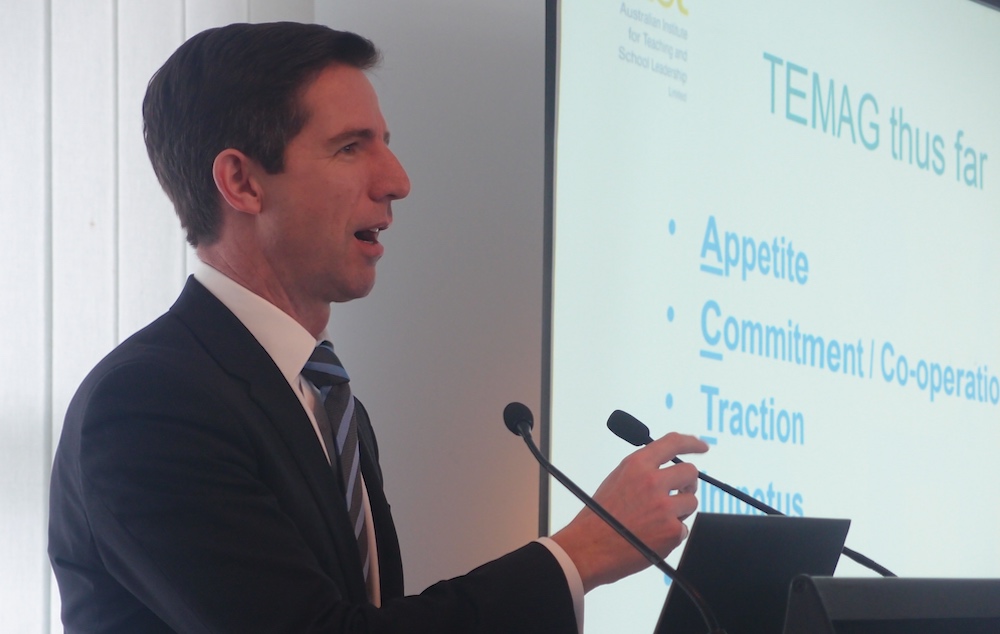
The global pandemic has changed the way we think about schools, communities, and society as a whole – and will continue to do so for some time.
Australia has also come out of the grip of a ferocious and terrifying summer of bushfires that directly impacted on most of the country. It’s been a stark illustration of the impact of societies on the global environment, as well as of the political, social and economic costs of leadership decisions.
Through these crises in Australia, public confidence in political leadership has often been lacking as key politicians underestimated the role and importance of a leader in the country’s time of need. Research shows that public trust and confidence has declined over many years, and is now in critical deficit when needed to navigate the complexities thrown up by COVID-19.
However, we also saw the evidence that leadership is about actions rather than sitting within a formal role – community members, volunteers, and activists have taken the lead in organising coordinated responses and support for those affected by the bushfires. We saw, vividly, the power of collective action and diverse acts of leadership.
International politics continues to move towards populist, authoritarian regimes and policies that further entrench disadvantage in our societies. Trust in institutions and society has been lost, and we’re increasingly aware of the manipulation of truth through social media and the news media on elections and politics, and public discourse. We see an uncritical consumption of fake news, and a spread of propaganda around the globe.
Schooling is directly affected by the political turmoil we see across the world. Education is an easy political football – international rankings and league tables, and annual national testing results contribute to a narrative of crisis and failure that’s unfounded. Calls for schools to go “back to basics” continue to be wheeled out frequently, with seemingly little consideration of what is in danger of being lost when doing so. Notably in Australia, as in many other parts of the world, equality of opportunity for marginalised populations is often exacerbated by schooling experiences when it should be ameliorated.
Generations to come will need to meet the challenges of our times through innovative and collective responses. The education they experience as children and young people will contribute to their capacity to be successful.
We hope that we can see a bigger picture of schooling emerge from all of this – one that’s less focused on attainment of arbitrary standards by a certain time and age, and instead focuses on progression through skills and knowledge, and embedding education within the local and global community.
In the face of such challenges, it’s easy to turn to despair. However, we’re seeing hundreds of thousands of young people around the world taking positive action. Through activities such as protesting against climate change inaction, children and young people are calling governments to act on the overwhelming science that points to how we should be responding to the climate crisis.
In order to thrive within these broader conditions, our communities need to support children and young people to develop agency, resilience, and a sense of belonging, as this is crucial to their wellbeing and ongoing mental health in challenging times.
School leaders are uniquely positioned between policy and practice – they’re the people who take policies designed to work for entire systems, and mould them into policies and subsequent practices that meet the local needs of their communities.
There’s much discussion at the moment that schooling can be reimagined into the future, and we believe there are some key attributes school leaders will need to possess in a “new” world:
Leaders need to be able to maintain a “bigger picture” of education than one that can be easily measured. We’ve already seen calls early in 2020 for standardised testing to be scrapped because of the effects of the COVID-19 pandemic, and we’ve seen the UK call off their qualifications exams for their schools.
We’re also seeing advocacy for schooling to be more about engaging with the world around us – for students learning from home to explore the way they fit within a rapidly changing world, and for schooling to be relevant, and meet the needs of incredibly diverse students and their changing contexts.
We hope that we can see a bigger picture of schooling emerge from all of this – one that’s less focused on attainment of arbitrary standards by a certain time and age, and instead focuses on progression through skills and knowledge, and embedding education within the local and global community. Educational leaders are going to be at the forefront of those decisions and the work that sets the future agenda.
Leaders need to be able to identify what elements of policies will meet their school needs, and filter the “noise” – the factors that add to the workload or the “busy-ness” of schools, without adding to their goals and priorities.
We’ve seen leaders cut through the noise of conflicting advice, and make decisions that are needed for their local communities. To do so, leaders need to have a solid understanding of their schools’ histories, cultures and traditions, and the specific needs of their local context. It takes time and work to build the relationships requisite to understanding these nuances of context.
Leaders are increasingly responsible for the oversight of a range of services to meet student and community needs. They need to have a big-picture understanding of the different forms of expertise, support, interagency collaborations, and resources that are available to them in their work. They need to be able to quickly draw upon their knowledge of policy and procedure to identify who can offer support, who might need support, and what resources are available to enable that support.
Leaders are often the faces of their schools, and a strong advocate for their communities. Leaders need to be able to communicate to and from systems about the local effects/influences of external policies and politics on their school’s students, staff and communities.
The importance of excellence in achievement and outcomes must have a foundation of equity – meeting student needs, supporting them to achieve their best, and to feel a sense of belonging and safety at school. Only when those foundational needs are met can students achieve excellence.
School reforms are often missing the voices of those most impacted – students. If we’re to change schooling to meet the needs of a changing world, and to empower students to be “confident and creative individuals” who are “active and informed members of the community”, as noted in the Mparntwe Declaration, we need to reimagine schooling structures so that student voices and experiences are centred.







